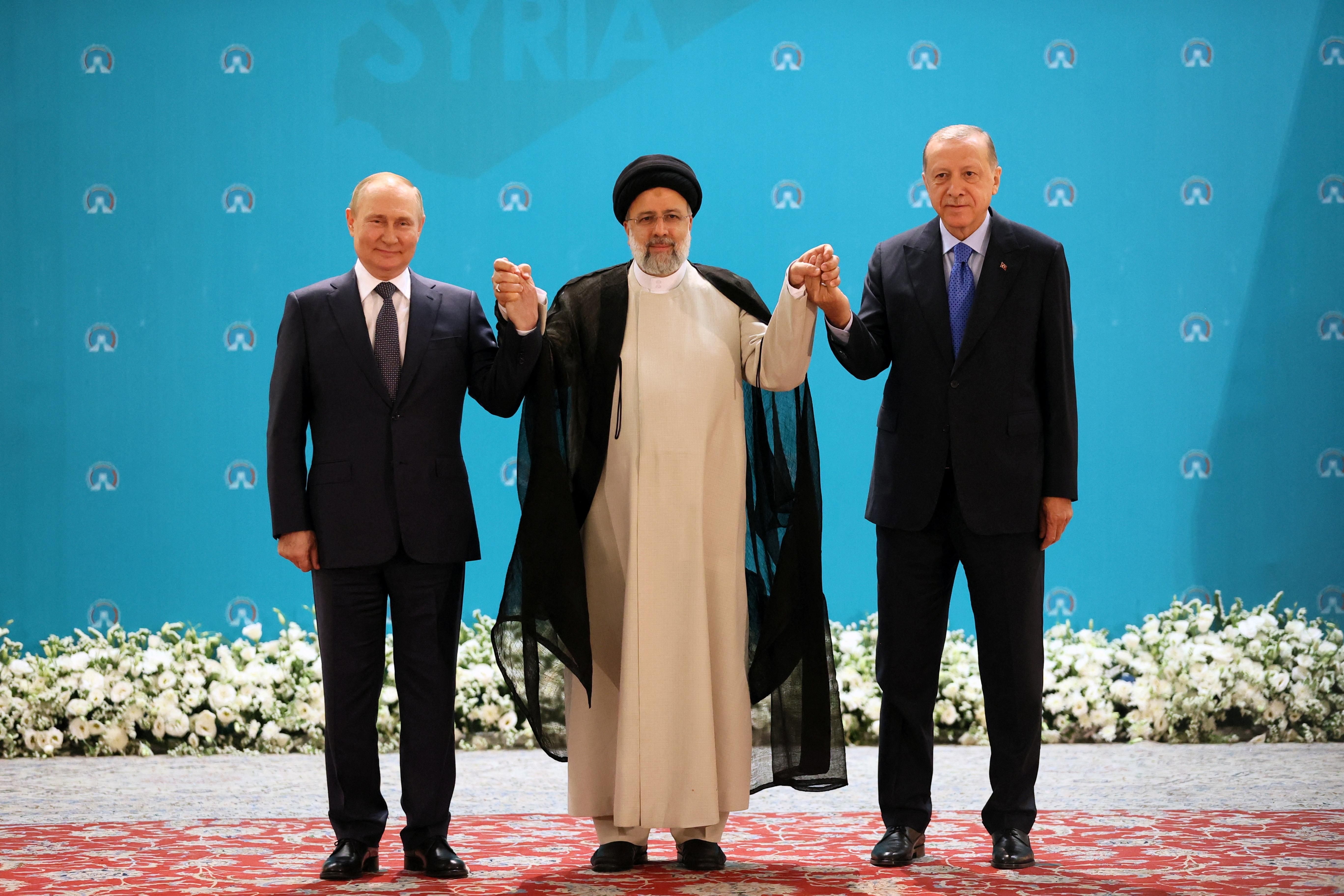Putin, Raisi & Erdogan in Tehran: friends with differences
Leaving the former Soviet region for the first time since he ordered the invasion of Ukraine, Russian President Vladimir Putin met in Tehran on Tuesday with his Iranian and Turkish counterparts. The conflict in Syria, where Russia and Iran are on the opposite side of Turkey, was the main item on the agenda, but little of substance was announced beyond a pledge to rid the country of terrorist groups and to meet again later this year. Importantly, Turkey’s recent threat to invade northern Syria to destroy Kurdish militant groups based there still hangs in the air — a point underscored by Recep Tayyip Erdogan’s call for Russia and Iran to be more “supportive” of Turkey’s security concerns. Still, both Moscow and Tehran have warned him against an invasion. Putin and Erdogan also failed to close the remaining gaps on a UN-backed plan to restart Ukraine’s seaborne grain exports. Lastly, while Putin and the Iranians traded shots at NATO and the West, there was no public mention of the current, fast-fading efforts to revive the long-stalled 2015 Iran nuclear deal.
EU fillets financial sanctions over food concerns
The European Union is planning on Wednesday to relax sanctions against several major Russian banks in a move to address high global food prices. Although there are no Western restrictions on Russian food or agricultural goods specifically, many global traders have avoided taking Russian cargo because the Russian banks that finance those exports are sanctioned. The news comes as Ukraine and Russia are nearing a UN-brokered deal to reopen Ukraine’s Black Sea shipping lanes for grain exports. Before Russia invaded Ukraine, the two countries were leading exporters of grain and cooking oils, and Russia was a top fertilizer exporter. The war and sanctions interrupted much of those shipments, driving up global food prices and jeopardizing the livelihoods and food security of hundreds of millions of people globally. Although global food prices have eased since hitting historic highs in May, they are still 23% higher than they were a year ago, according to the UN. For complete coverage of the global food crisis, check out our Hunger Pains project.
Sri Lankan MPs pick unpopular president
Following last week's dramatic resignation of disgraced former President Gotabaya Rajapaksa, Sri Lankan's parliament on Wednesday endorsed his unpopular chosen successor amid mass social unrest sparked by a months-long economic collapse and political crisis. Ranil Wickremesinghe, the former prime minister appointed acting president after Rajapaksa's departure, was confirmed in the top job by a majority of MPs over the little-known opposition hopeful Dullas Alahapperuma. On the one hand, Wickremesinghe has the experience to lead the country through tough times and crucial negotiations for an IMF bailout after serving — checks notes — sixstints as PM. On the other, most protesters want him out because he's considered a Rajapaksa loyalist (they even torching his private residence at the height of the popular uprising). The opposition now says they’re willing to give Wickremesinghe a chance, but the political turmoil will likely continue.
This comes to you from the Signal newsletter team of GZERO Media, a subsidiary of Eurasia Group that offers balanced, nonpartisan reporting, and analysis of foreign affairs. Subscribe to Signal today.
